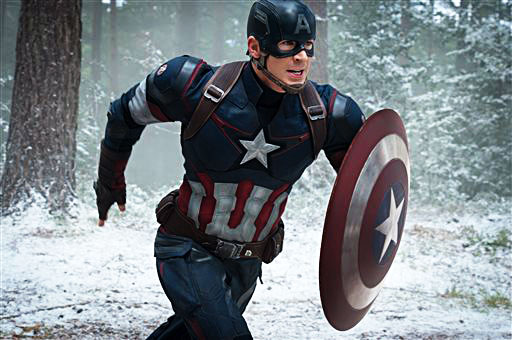
With some exceptions, the superhero narrative has largely told the story of how, through good virtues and great power, alienated and subjugated individuals find the ability to overcome their circumstances in order to devote their lives to the greater good.
Largely limited to print media over the last century, superheroes were something special to those who followed the monthly chronicles of their favorite arbiters of justice. While comic books still exist, the genre has been completely redefined and refitted for screens both big and small. What were once figures of diversity and progressive social attitudes, superheroes exist today largely as handsome, white, man-candy action heroes and Scarlett Johansson types.
Perhaps it’s not fair to say that Hollywood has killed the comic book star. Where people are often dissuaded or intimidated by “nerd culture” and the graphic novel medium, Hollywood accomplishes something that comic books could never do: It makes the superhero narrative accessible to a much wider audience. Without the magic of Hollywood, superheroes might have died off a long time ago. However, what the superhero narrative has lost in translation to film is the very thing that made it worthwhile to begin with.
For nearly 80 years, comic books have been telling the untold stories: presenting serious social and political issues in a unique fashion. It wasn’t that they were giving the answers, but rather asking the questions. What print allowed these stories to do was experiment with new storytelling techniques and underrepresented sociocultural and ethnic identities.
This has much to do with the respective finances involved in making movies versus printing comic books. When a movie takes risks, it gambles hundreds of millions of dollars and the alienation of an unforgiving fan base. When a comic book takes risks, it gambles the cost of a reprint and a nice apology from the editors. With comic books, a new hero can be printed monthly to attract a wider demographic, appealing to more minorities than the movies can. For the same reason that we still haven’t see a black Spider-Man in theaters, the superhero narrative still needs print media.
The release of Marvel’s “Avengers: Age of Ultron” marks the 11th movie to join the greater canon of work of the Marvel Cinematic Universe and further sets the stage for future film development. It’s not to say that any of these movies are bad, but Hollywood is investing heavily in a once-niche market. Still, to protect the film industry’s bottom line, these films have all sought a necessary separation from the source material. Comic books aren’t for everyone and they’ve certainly gone through their own fair share of phases, but the problem with the contemporary film adaptation of the superhero narrative is that they haven’t captured the complex spirit, nor progressive attitude that comic books continue to develop.
The contemporary superhero movie has proven to be little more than an action flick masquerading around in masks and colorful tights. But, the question still remains: Will people get bored of the trend? Especially considering all the accompanying television series currently online and on-air, the market for superheroes might be reaching some critical mass that could potentially cause it to crumble.


